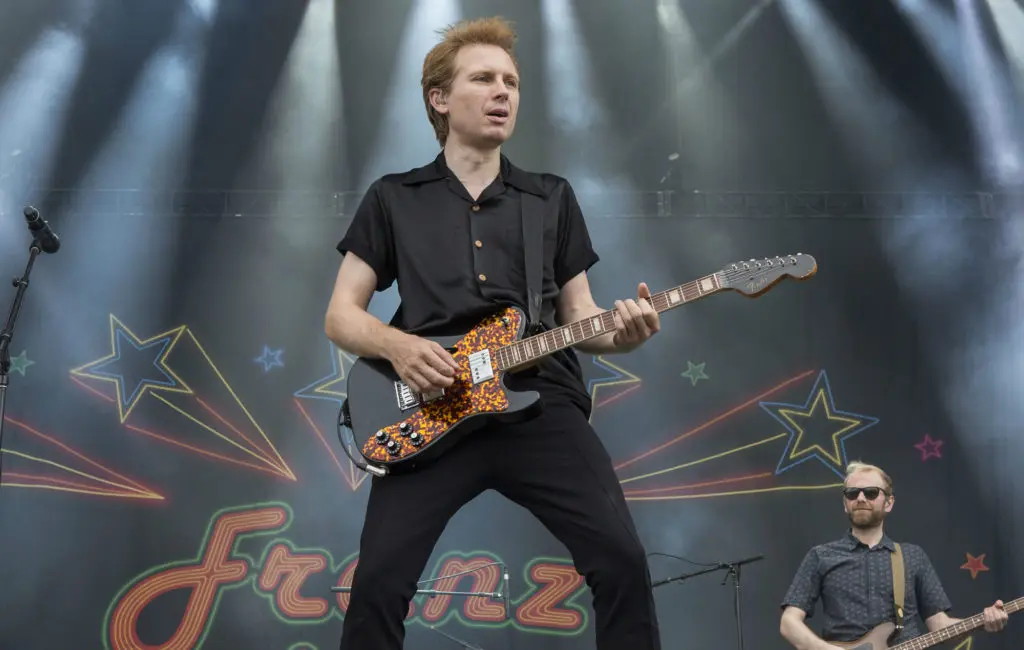Combining jagged, rumbling guitars with melodic pop hooks, intertwining male and female voices, and catchy enigmatic lyrics, the Pixies were one of the most influential alternative rock bands.
They were inventive hard rock fans who turned the canons inside out: on albums like 1988's Surfer Rosa and 1989's Doolittle, they mixed punk and indie guitar rock, classic pop, surf rock. Their songs have strange, fragmented lyrics about space, religion, sex, mutilation and pop culture.
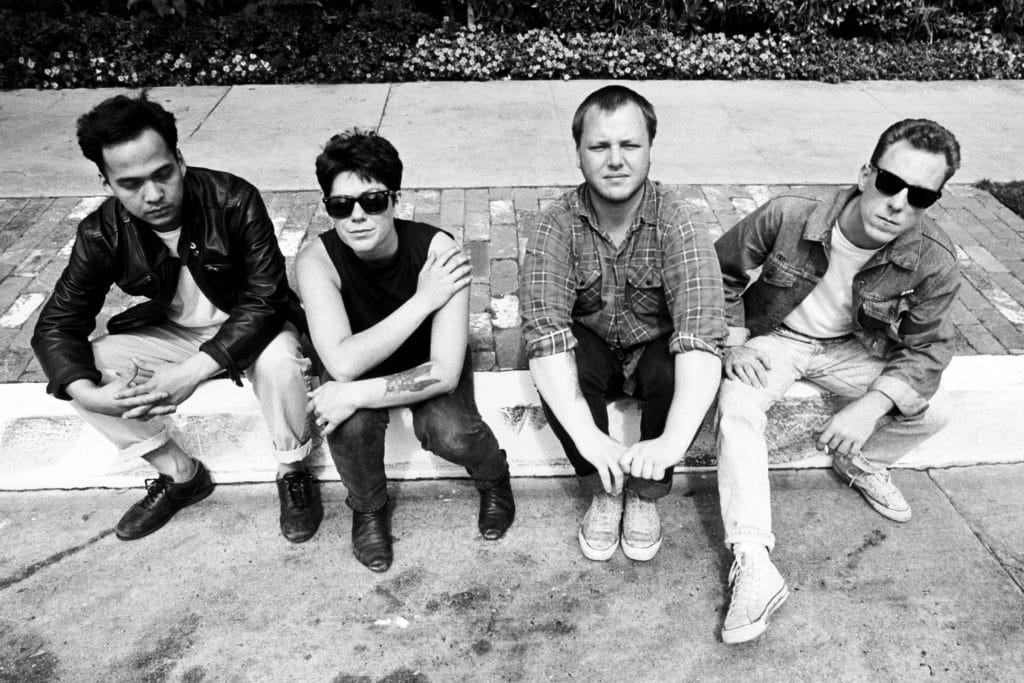
While the meaning of their lyrics may have been incomprehensible to the average listener, the music was straightforward and set the stage for an alternative explosion in the early 90s.
From grunge to Britpop, the influence of the Pixies seemed immeasurable. It's hard to imagine Nirvana without Pixies' signature Stop-Start dynamics and rumbling, noisy guitar solos.
However, the group's commercial success did not match its influence - MTV was reluctant to play the group's videos, while modern rock radio did not put singles into regular rotation.
By the time Nirvana paved the way for alternative rock in 1992, the Pixies were effectively broken and unknown to anyone.
Throughout the rest of the 90s and 2000s, they continued to inspire new artists ranging from Weezer, Radiohead and PJ Harvey to the Strokes and Arcade Fire.
The Pixies' 2004 reunion was as surprising as it was acclaimed by the fans, and the band's frequent touring led them to record albums, including 2016's Head Carrier. The new records continued to sound like their revolutionary early work.
Formation and early career
The Pixies were formed in Boston, Massachusetts in January 1986 by Charles Thompson and Joey Santiago, Thompson's roommate while attending the University of Massachusetts Amherst.
Thompson was born in Massachusetts and traveled constantly between it and California. He began playing music as a teenager before finally moving to the East Coast in high school.
After graduation, he became the chief anthropologist at the University of Massachusetts. In the middle of his studies, Thompson traveled to Puerto Rico to study Spanish and decided to return to the US six months later to form a band. Thompson dropped out of high school and moved to Boston, managing to convince Santiago to join him.
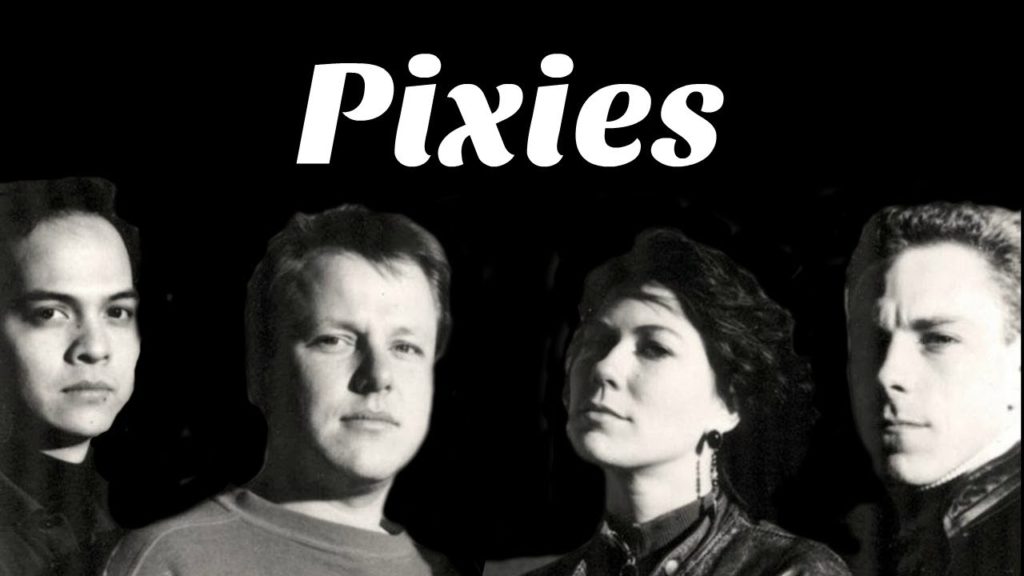
All musicians assembled
An advertisement in a music newspaper for a bassist who would love Hüsker Dü and Peter, Paul and Mary helped find Kim Deal (who was billed as Mrs. John Murphy on the band's first two recordings).
Kim previously played with her twin sister Kelly in their band The Breeders in her hometown of Dayton, Ohio.
On Deal's advice, the band hired drummer David Lovering. Inspired by Iggy Pop, Thompson chose the stage name Black Francis.
The group named themselves the Pixies after Santiago accidentally flipped through a dictionary.
First demo
Within a few months, the Pixies had played enough shows to open for the Boston band Throwing Muses. At a Throwing Muses concert, Gary Smith, manager and producer at Boston's Fort Apache Studios, heard the band and offered to record an album with them.
In March 1987, the Pixies recorded 18 songs over three days. The demo, dubbed "The Purple Tape", was sent to key members of the Boston music community and the international alternative scene, including Ivo Watts, head of 4AD Records in England. On the advice of his girlfriend, Watts signed with the band. After selecting eight songs from the demo and lightly remixing them, 4AD released them as "Come on Pilgrim" in September 1987.
The album is named after lyrics from a song by Christian rocker Larry Norman - whose music Francis listened to as a child. The EP peaked at number five on the UK Indie Albums Chart.
"Surfer Rose"
In December 1987, the Pixies began recording their first full-length album Surfer Rosa with Steve Albini at Q Division Studios in Boston.
Released in March 1988, Surfer Rosa became a radio hit in America (and was eventually certified gold by the RIAA in 2005).
In the UK, the album peaked at number two on the indie chart and received rave reviews from the UK weekly music press. By the end of the year, the Pixies' popularity was substantial and the band signed with Elektra.
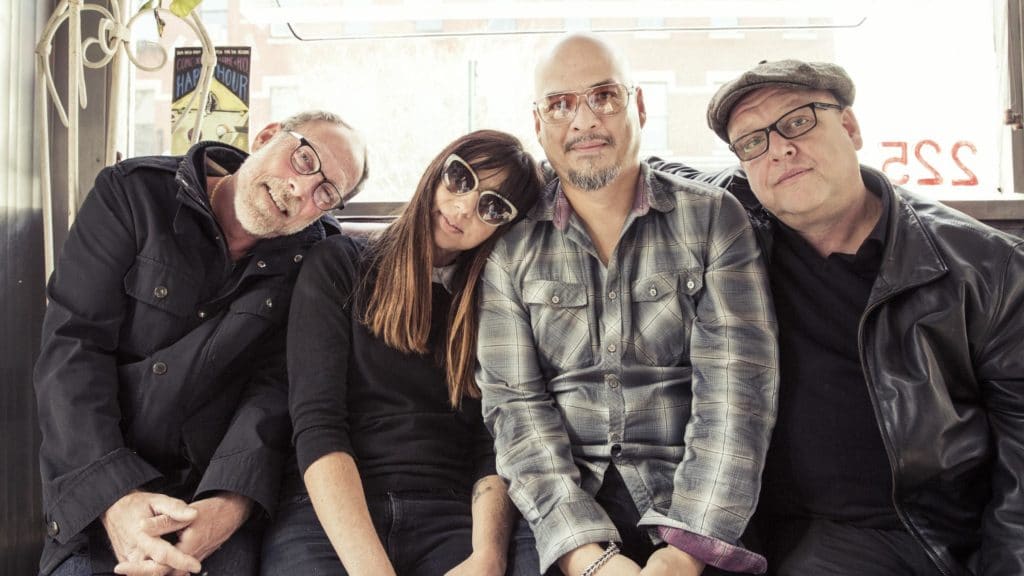
Doolittle
While touring in support of Surfer Rosa, Francis began writing songs for the band's second album, some of which appeared on their 1988 sessions for the John Peel radio show. In October of the same year, the band entered Downtown Studios in Boston with English producer Gil Norton, with whom they recorded the only single "Gigantic" in May.
With a budget of $40—four times what the Surfer Rosa album cost—and a month of constant recording, Doolittle was Pixies' purest sounding album. It received excellent reviews, which led to its great distribution in America. "Monkey Gone to Heaven" and "Here Comes Your Man" became the biggest hits in modern rock, paving the way for "Doolittle" on the charts.
The album peaked at number 98 on the US charts. Meanwhile, it peaked at number eight on the UK Albums Chart.
Throughout their career, the Pixies have been more popular in Britain and Europe than in America, as evidenced by the success of the Sex and Death tour in support of Doolittle. The band became infamous for Black Francis' motionless performances, which were offset by Deal's charming sense of humor.
The tour itself became famous for the band's jokes, such as playing their entire setlist in alphabetical order. After completing their second American tour for Doolittle in late 1989, the band members began to tire each other out and decided to take a break.
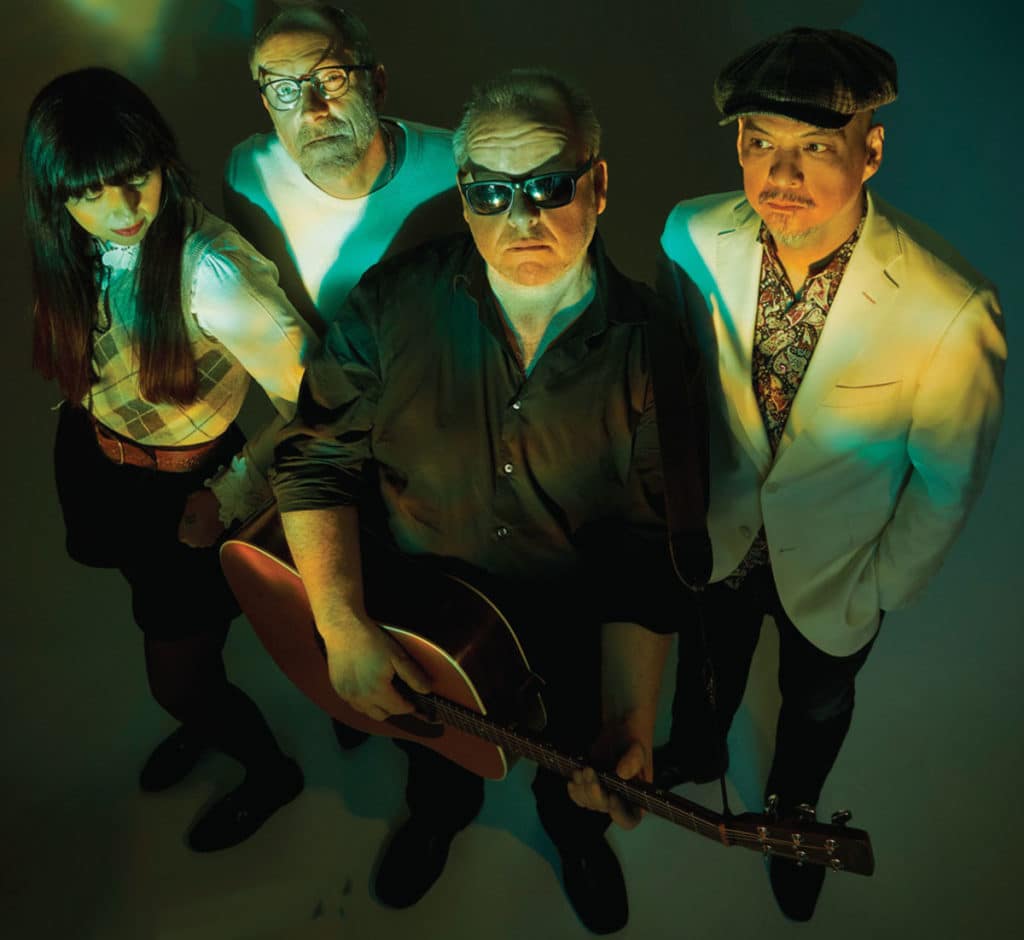
Solo activities and early work
During his absence from the Pixies, Black Francis embarked on a brief solo tour. Meanwhile, Kim Deal reorganized the Breeders with Tanya Donelly of Throwing Muses and bassist Josephine Wiggs of Perfect Disaster.
In January 1990, Francis, Santiago and Lovering moved to Los Angeles to prepare for the recording of the Pixies' third album, Bossanova, while Deal worked with Albini on the Breeders' debut Pod in the UK.
She joined the rest of the band a little later to start recording in February.
Working again with Norton at Master Control's California-based Burbank studio, the band wrote many of the songs on the forthcoming album.
More atmospheric than its predecessors and drawing heavily on Francis' obsession with surf rock, "Bossanova" was released in August 1990.
The album was met with mixed reviews, but the record became a hit with young people, spawning contemporary rock hits "Velouria" and "Dig for Fire" in the US.
In Europe, the album expanded the band's popularity by reaching number three on the UK album charts. He also paved the way for the band to headline the Reading Festival.
Although Bossanova tours were successful, tensions between Kim Deal and Black Francis continued to escalate - at the conclusion of their English tour, Deal announced from the Brixton Academy stage that the concert was "our last show".
Trompe le Monde
The Pixies reconvened in early 1991 to make their fourth album with Gil Norton, recording at studios in Burbank, Paris and London. Recruiting former Captain Beefheart and Pere Ubu keyboardist Eric Drew Feldman as a session member, the band returned to loud rock, claiming to be inspired by Ozzy Osbourne's presence in a nearby studio.
After its fall release, "Trompe le Monde" was hailed as a welcome return to the sounds of "Surfer Rosa" and "Doolittle", but a closer look revealed that it relies heavily on sonic detail and features virtually no vocals from Deal. Like Bossanova, none of her songs are here.
The band embarked on another international tour, playing stadiums in Europe and theaters in America.
In early 1992, the Pixies opened for U2 on the first leg of the Zoo television tour.
The band went on hiatus again after it ended, and Deal returned to the Breeders, who released the Safari EP in April. Francis began working on a solo album.
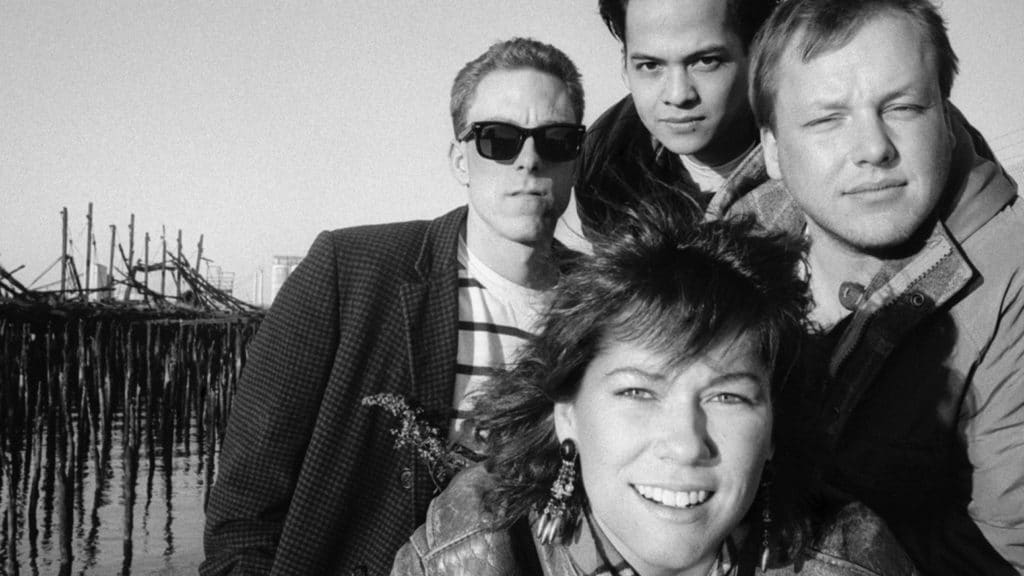
Team breakup
While Francis was preparing to release his solo debut album in January 1993, he was interviewed on BBC Radio 5 announcing that the Pixies were disbanding.
He has not yet informed the other members of this. Later that day, he telephoned Santiago and faxed Deal and Lovering the news.
Turning his stage name to Frank Black, Francis released his self-titled album in March.
The Breeders released their second album Last Splash in August 1993. The album became a hit, being certified gold in the US and spawning the hit single "Cannonball". Shortly thereafter, Deal also formed the band Amps, which released their only album Pacer in 1995.
Santiago and Lovering formed Martinis in 1995 and appeared on the Empire Records soundtrack.
In the late 90s and early 2000s, 4AD released archival Pixies recordings, including Death to the Pixies 1987-1991, Pixies at the BBC, and Complete B-Sides.
After releasing "Cult of Ray" for American in 1996, Black moved between different labels and landed on SpinART for the 1999 release of "Pistolero" and several subsequent solo albums.
Deal and the Breeders, meanwhile, suffered from problems ranging from substance abuse to writer's block, and made only occasional public appearances while in the studio. It wasn't until 2002 that they released "Title TK".
David Loveng left Martinis to become a touring drummer for Cracker and also appeared in Donelly's Sliding and Diving, but found himself unemployed in the late 90s. Combining his research in electronic engineering at Wentworth Institute of Technology and his years of work experience, Loverng has described himself as a "scientific phenomenalist," a cross between a scientist, an artist, and a magician.
Santiago and his wife Linda Mallari continued to play with Martinis into the 90s, recording several demo songs and self-released albums. Santiago also launched a career as a soundtrack composer.
Hopes that the Pixies would reform remained unfounded until 2003, when Black said in an interview that he was considering reuniting the group. The musician also stated that he, Deal, Santiago and Lovering sometimes got together to write music.
Reunion years later
In 2004, the Pixies reunited for US tours, Coachella performances, and shows in Europe and the UK during the summer, including T in the Park, Roskilde, Pinkpop, and V.
All 15 of the band's shows in North America were recorded and released in a limited edition of 1000 copies and later sold online and at shows.
2000s and new music
Despite constant touring throughout the 2000s and 2010s, no more new music emerged until 2013 when the band entered the studio with longtime producer Gil Norton.
During these sessions, Deal officially left the group. Former Fall bassist Simon Archer, also known as Dingo, replaced Deal in the studio and the band hired Muffs' Kim Shattuck to tour.
"Bagboy", the Pixies' first song in nine years, was recorded in July 2013, featuring Bunnies vocalist Jeremy Dubs.
In November of that year, Shattuk left the group. A few weeks later, Paz Lenshantin, who had also played with Zwan and A Perfect Circle, was named bassist for the Pixies.
EP2 was released in January 2014 and EP3 was released in March of the same year. The EPs were compiled as the "Indie Cindy" album. It peaked at number 23 on the Billboard 200 albums chart, making it the band's highest-charting album in the US to date.
Sixth album
The Pixies began work on their sixth album in late 2015, working with producer Tom Dalgety at RAK Studios in London.
Released in September 2016, "Head Carrier" was the first album in which Lenshantin became a full member of the group. The album peaked at number 72 on the Billboard 200, while the single "Classic Masher" debuted on the Alternative Songs chart at number 30.
In late 2018, the band reunited with Dalgety and recorded their seventh album at Dreamland Recordings in Woodstock, New York. The Pixies documented the making of the album in a 12-episode podcast hosted by Tony Fletcher. The premiere took place in June 2019.


